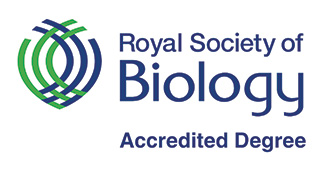MSci Ecology and Wildlife Conservation
-
UCAS code
CD97 -
A level offer
ABB -
Year of entry
2026/27 -
Course duration
Full Time: 3 Years
-
Year of entry
2026/27 -
Course duration
Full Time: 3 Years
Learn about the ways in which living things interact with their environment and apply this knowledge to tackling the biggest challenges facing the world today.
This course will equip you with the skills you need for a career in ecology or wildlife conservation through a combination of classroom learning and hands-on experience in the field. You will learn to apply knowledge of ecosystems to environmental issues such as habitat conservation, the biological control of diseases, and the protection of the world's rarest plants and creatures.
Most of our staff are actively engaged in research, and our work on wildlife ecology and conservation feeds into undergraduate teaching. 92% of School of Biological Sciences students said teaching staff are good at explaining things (National Student Survey 2025, 92.3% of responders). You will also have the opportunity to take part in original research with a potentially global impact. All graduates are eligible for membership of The Royal Society of Biology and can apply for Chartered Biologist status.
The University of Reading’s award-winning campus is home to over a thousand different animal species and is extremely useful for learning fieldwork skills. It offers multiple habitats for study, including lakes, hay meadows and woodlands, and allows you to step straight from the laboratory to the field. Additionally, the University owns a number of large farms, which can be used as sites for final year projects.
You will also be able to practise species identification and ecology skills through a choice of field trips in the UK and beyond. Our Ecology and Conservation Field Course takes place in South Africa, exposing students to diverse conservation and development issues, while our Marine Biology Field Course explores South Africa's incredible marine biodiversity. Closer to home, our UK Biodiversity Field Course takes students to Devon to explore the UK's diverse habitats and the animals that call them home.
Furthermore, you can carry out a year-long industrial placement between the second and final years, in order to gain valuable industrial experience. You can also choose to do a short placement module. We have strong links with a number of ecological organisations including the Environment Agency, the Living Rainforest, the Wildlife Trusts, the Royal Society for the Protection of Birds (RSPB) and the Wildfowl and Wetlands Trust.
Placement
Students in previous years have worked at the Wildfowl and Wetlands Trust, the RSPB and the Environment Agency. You can also choose to spend a year abroad, typically carrying out research for an academic institute.
Our Department has a dedicated academic in charge of placements, who can provide you with advice and support.
Build your skills portfolio with The Living Rainforest
Home to over 850 species of plants and animals, The Living Rainforest brings a vibrant rainforest ecosystem to life with a mission to educate the public about rainforests, conservation and sustainable living. Through our exclusive partnership, you will gain employer-verified evidence of your skills in a real-world setting. From animal observation and welfare, to public engagement and plant management, your skills will be officially signed off by the Living Rainforest team, boosting your portfolio’s impact with future employers.


